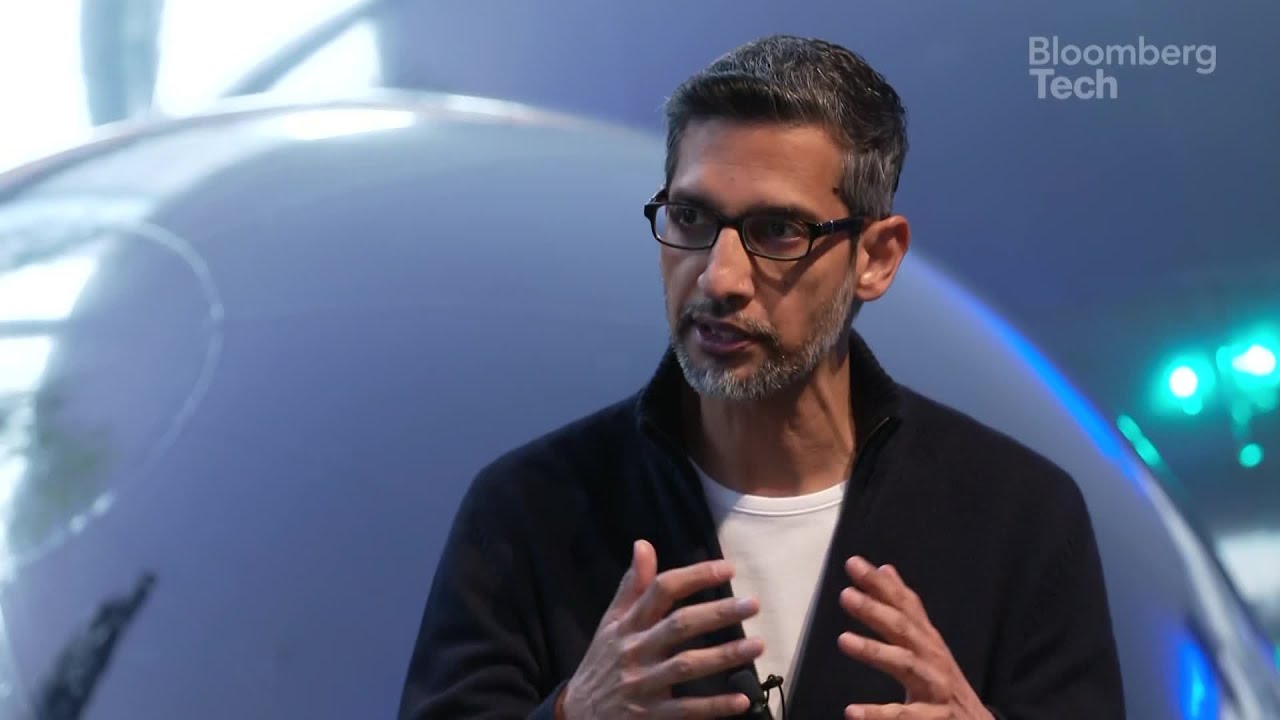Sundar Pichai discusses Google’s advancements in AI, particularly the Gemini models, and their integration across products to enhance user experience while addressing societal and regulatory challenges. He emphasizes Google’s ongoing innovation, investments, and ethical responsibilities, envisioning AI as a powerful tool to solve complex problems and improve human life.
In the interview, Sundar Pichai discusses Google’s advancements in artificial intelligence (AI), highlighting the progress of their Gemini models, which are now at the forefront of AI capabilities. He mentions that Google is integrating these models across its suite of products, making AI more accessible and useful for users. Pichai emphasizes that while AI is transforming how people interact with technology, it is not replacing traditional search but rather evolving alongside it, with people still valuing search for its empirical accuracy and reliability.
Pichai elaborates on Google’s significant investments in AI, with a CapEx of $75 billion planned for 2025, which supports a broad range of initiatives from search and YouTube to cloud computing and autonomous vehicles through Waymo. He notes that AI is creating new revenue streams, especially in cloud services and subscriptions like Google AI Pro and Ultra. He also discusses how AI is enhancing content creation and curation, such as improving YouTube recommendations with Gemini, and addressing challenges like filtering low-quality content amid the explosion of AI-generated media.
The executive addresses concerns about AI’s societal impact, including job displacement and the potential for misinformation. He argues that AI will create new opportunities and jobs, citing examples like video creation and personalized education. Pichai stresses the importance of societal adaptation, including reskilling workers and establishing regulations to manage deepfake videos and other AI-generated content. He acknowledges the long-term unpredictability of AI’s effects but remains optimistic about its potential to solve complex problems like cancer and climate change.
On issues related to market dominance and regulation, Pichai defends Google’s position, asserting that the company continues to innovate and that user choice remains strong. He criticizes proposed remedies that could overreach, such as breaking up Google, and emphasizes Google’s ongoing investments in R&D, including projects like Waymo and quantum computing. He also discusses the importance of competition and the likelihood that new dominant companies will emerge in the future, as history has shown with technological revolutions.
Finally, Pichai reflects on the ethical and societal responsibilities of tech leaders, emphasizing empathy and the importance of building trustworthy AI. He discusses the potential for AI to enhance human experiences, including in education and personal productivity, while acknowledging the need for regulations to prevent misuse. Looking ahead, he envisions a future where AI acts as a powerful companion, helping people navigate an increasingly complex digital world, and underscores Google’s commitment to long-term innovation, culture, and societal impact as it approaches its 50th anniversary.
